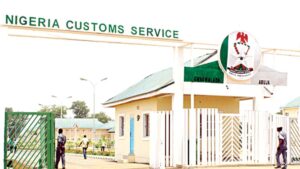Oluyinka Onigbinde
Agencies in the Federal Ministry of Finance (FMoF), have been identified as forces behind the non-establishment of the proposed national fleet, Shipping Position Daily can authoritatively report.

Recall that the Federal Ministry of Transportation (FMoT), under the leadership of the immediate past minister; Mr Rotimi Amaechi, set up a committee on how best to establish a national shipping line after the demise of the Nigeria National Shipping Line (NNSL).
However, the National Fleet Implementation Committee (NFIC), which is headed by the Executive Secretary, Nigerian Shippers’ Council; Mr Emmanuel Jime have submitted its report to the current Minister of Transportation, Engr Muazu Sambo. In the report, the committee called out some agencies of government as impediments to the national carrier.
The report, which was exclusively obtained by our correspondent, showed that the committee accused government agencies in the Federal Ministry of Finance; that is, the Nigeria Customs Service (NCS) and Federal Inland Revenue Service (FIRS), of not adequately supporting the project, stating that securing their buy-in was largely non-existent.

The report was submitted to the minister by the committee in September this year and was obtained recently by our reporter.
The implementation committee include: Executive Secretary of Nigerian Shippers’ Council as the chairman, Mr Mele Kyari, GMD, NNPC. Others are – Mr. Pius Oteh Director, Legal Services FMOT, Dr. Bashir Y. Jamoh, Director General, NIMASA Mr. Mohammed Bello-Koko Managing Director, NPA, Mr. Abubakar A. Bello, Managing Director, NEXIM Bank, Dr. Mkgeorge Onyung, President, Ship Owners Association of Nigeria, Ahmed Tijjani Ramalan, National Seafarers Welfare Board, among others,
The body explained that governments of major shipping nations approach the development of the shipping sector as a national policy which triggers incentive measures from relevant agencies of government such as Ministries of Finance, Commerce and Trade, among others.
The implementation committee further disclosed that the agencies under the Ministry of Finance and which are major tax collectors for the Federal Government placed more emphasis on the short-term effect of the national fleet on the economy than the long-term benefits.
The report reads in part: “These MDAs’ basically stand on what Nigeria stands to lose in the short term in terms of revenue generation, than what will accrue to the national economy in the long run in terms of increased indigenous tonnage, growth in ship registry and retention of freight earnings on cargo and contribution to the nation’s Gross Domestic Product (GDP).
Read Also: 18 Years After: FG To Commence Disbursement Of $350 Million CVFF Funds With Immediate Effect
The committee further said that those countries design special incentives for their shipping industries to make them competitive in the global space.
They however lamented that the critical buy-in of the project by key MDAs in the country is still largely non-existent, as there is currently an over-emphasis by these MDAs on what the country stands to lose in the short run in terms of revenue generation.
The committee lamented that currently, Nigeria’s shipping business is at the mercy of foreign ship owners who earn more than $ 5 billion in freight annually, which represents an economic loss to the national economy.
It further said the development of private sector-driven Nigerian Fleet is a task that must be achieved for the present as well as future security of the national economy as it presents an opportunity for a paradigm shift in the current dominance by foreign ship-owners of Nigeria’s international trade.
They however said to achieve this, efforts must take the form of a deliberate national policy to create a conducive business environment with the requisite incentive measures by relevant agencies of government.
shippingposition
Kindly like us on Facebook/twitter















